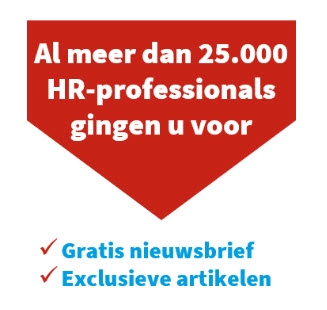Talent management professional in the spotlight: Yaprak Michel
Yaprak Michel een HR professional van de wereld vertelt haar verhaal.
What were your assignments for HR in the past?
I started my career in recruitment at PwC in Turkey. It was a great experience as I loved finding out what made people tick. While I was doing my master’s in industrial/organizational psychology in Canada, I also worked as consultant where I supported clients in their selection and development processes. My next assignment was at Bayer in Turkey where I had an HR generalist role with a specific focus on organizational development projects. One of my accomplishments during that time was to manage a cultural project locally after a major acquisition. I had the chance to understand the importance of culture in an organization early in my career and I still believe culture can make or break things for companies. After moving to the Netherlands, I briefly worked for Projob, a small recruitment agency in Amsterdam, where I advanced my recruitment skills. I then joined Sara Lee, in the talent & learning center of excellence, where I was responsible from identifying and developing high potential employees and coaching and supporting the local HR and business leaders. I was involved in the performance management, talent review and succession planning and development activities. My last job was at D.E MASTER BLENDERS 1753, which was the international coffee & tea business that spinned of from Sara Lee. Here, I managed global projects such as employee engagement, cultural change and onboarding.
What are some success factors for talent management to be meaningful?
The alignment with the overall business strategy is key. In the end, talent management is all about value creation therefore it needs to be closely linked with the business strategy and what the company is trying to achieve. Secondly, the senior management needs to be on board. I experienced this many times as senior management needs to believe in it and then be a role model for the rest of the organization. Finally, talent management might mean different things for different organizations. Whatever the definition and boundaries are, the processes needs to be connected with each other. For example, performance management is crucial in order to determine who our high potentials are. Similarly, recruitment practices need to be in line with what kind of talent we need at the moment but also what kind of talent we will need in the future.
What would you like to change in HR?
We, in HR, sometimes get stuck with our own HR agenda, which makes us lose sight of what the business really needs. So I think we need to be part of the business, spend time with the business and most importantly listen genuinely to the business instead of telling them what to do. The nice balance between challenging and supporting is what makes HR so exciting.
Do you have a dream assignment/mission?
There are a couple of things I am passionate about. I like to build things from scratch. I believe in the power of collecting data from different people at different places in an organization and build something from that. This could be a process or a project. Therefore I am very interested in organizations that do not have an established talent management strategy or department where I can build things from scratch. Another thing is linked to my international background. I am very interested in companies that have business in different countries where the culture is different from the Western culture. I get energy from building these connections and also reaching results with these people. So I guess my dream assignment is to build a talent management strategy/department in a remote location!


